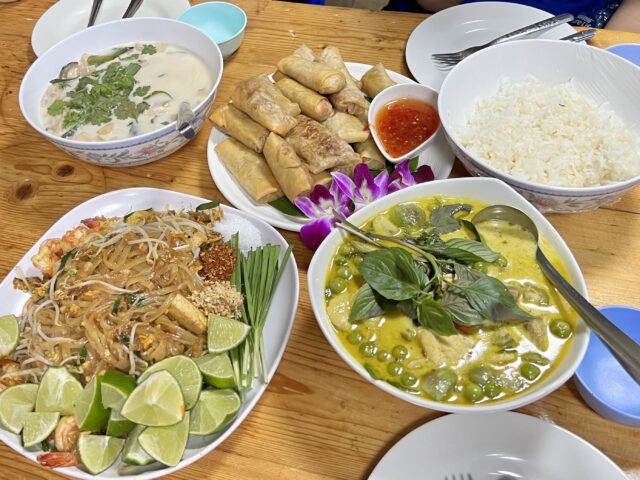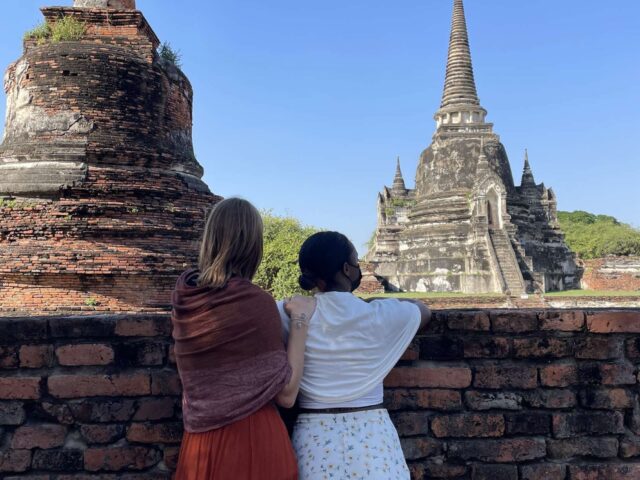Even though I tell people I never really experienced culture shock, there was still an adjustment period when I studied abroad in Chiang Mai, Thailand.
Not knowing how to ask for vegetarian food, getting sick a few days in and a public transportation system that was light years away from the New York City subway all made adjusting just a little bit harder than I had hoped. However, as classes started and I started to feel more comfortable with using songthaews – which can only be described as the slightly wacky child of UberPool – and a municipal bus to get around, with speaking Thai asking for vegetarian food, I began to feel at home in Chiang Mai.
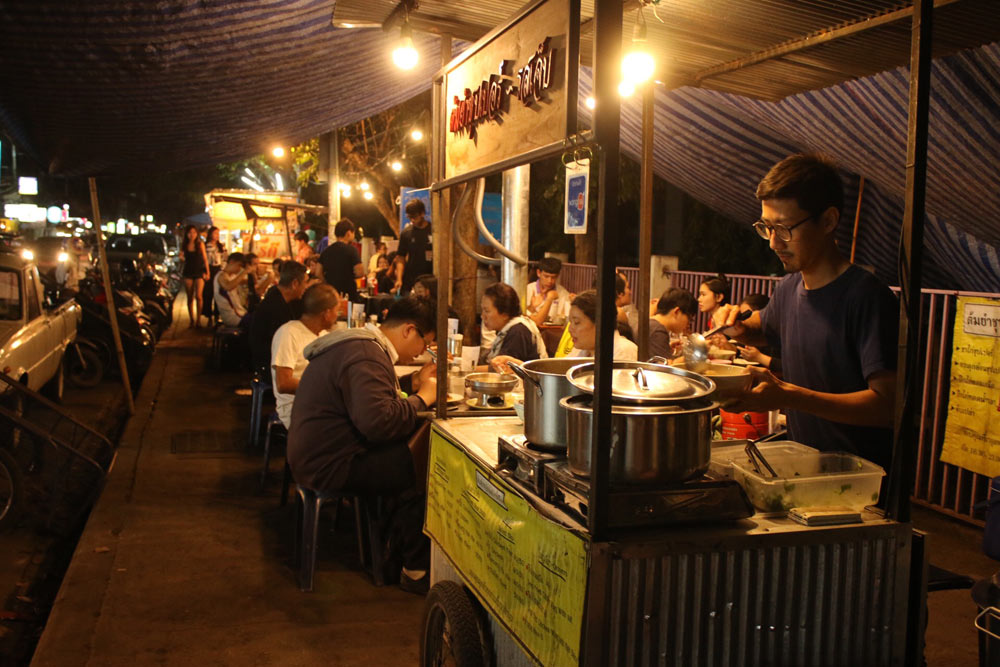
Having Thai friends helped a lot, as did going to school and wearing the same uniform as the Thai students. I always stood out as a tall, very pale, curly haired white woman (I was very easy to spot in a crowd of Thai people). However, when the soup vendor at Chiang Mai University’s canteen started to know my lunch order or the omelet vendor would chat with me about my family, I felt like a part of a community. They did not speak much English and I did not speak much Thai, but we did the best that we could.
Staying in a village for a week also helped me to further adjust to living in Thailand because we were immersed in the day-to-day lives of the average Thai villager instead of only experiencing Chiang Mai as American students. As a student, you can sometimes blend in with the crowds of backpackers and “digital nomads” that flock to Chiang Mai, so visiting touristy places often means you lumped in with the other backpackers. Feeling more connected to the Thai people I interacted with helped distinguish me from a short-term visitor and as someone who was living in the city genuinely trying to immerse themselves in local life.
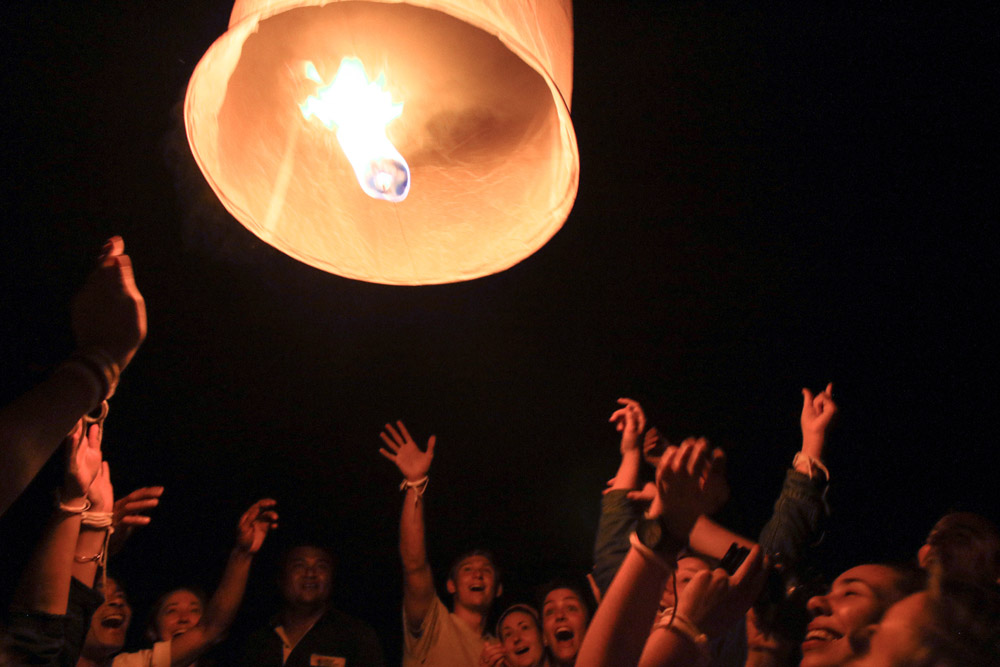
This was how I began to feel more at home in Chiang Mai than I do in New York now. Often, it helped wearing our school uniforms and attempting to speak Thai. If we would go to a café after school wearing the trademark white button down and black skirt of a Thai university student, the servers would sometimes ask us skeptically if we attended school there. Answering yes always made us feel like we belonged there. If we could order food or barter in Thai, we found that people would usually be more willing to charge us lower prices than when we only spoke English – even if our Thai was barely understandable!
There were a lot of little moments that let me pinpoint when I gradually started to feel like more of a local, but there is one specific time that gave me that aha! moment. It was fairly early on, but I was getting the hang of things and trying to order my food in Thai – no matter how much I felt like I couldn’t possibly be saying the words right. I had stopped at a different fruit stand than my usual one on my way to class in the morning because it sold guava.
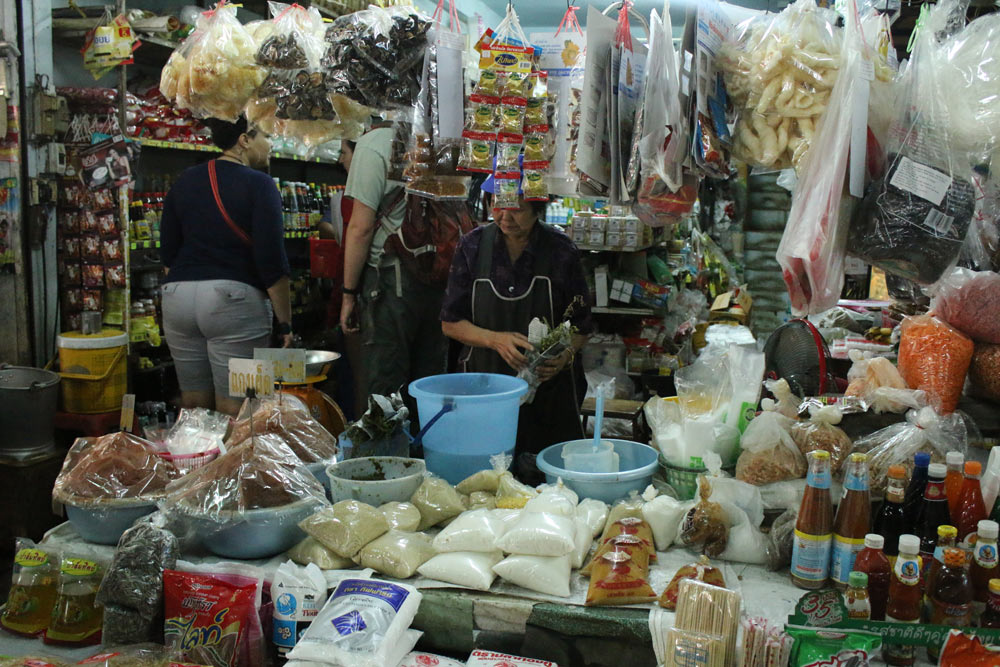
The Thai word for guava is “farang” which happens to be the same as the Thai word for foreigner. So I walked up and I said “Sawadee-ka! Nung farang, ka” (Hi! One guava please). The woman nodded, began to cut up the guava I had just ordered and then started to chuckle to herself. She looked at me and said laughing, “Farang gin farang!”. “Gin” means “eat” and after a few seconds of processing, I began to laugh too. Although “foreigner eats guava” isn’t particularly funny in English, it’s a pun in Thai! I walked away from that encounter grinning, because not only had I joked around with a street vendor, I had gotten a pun in Thai and understood why it was funny.
That moment may seem inconsequential, but it was the little times like that where I understood jokes or negotiated a price in Thai, when I would begin to feel like I was a part of the usual daily life in Chiang Mai and that I didn’t stick out quite as much as before.
I found that Chiang Mai was a place that had a lot (and I mean a lot) of foreigners just passing through without making much of an effort to blend in with daily lives of Thai people living there. In an environment like that, doing little things to make myself a part of the fabric of the city was the thing that made me feel, and made others treat me, most like a local.
Katherine Gallagher (Pace University) studied abroad in Thailand with TEAN.




